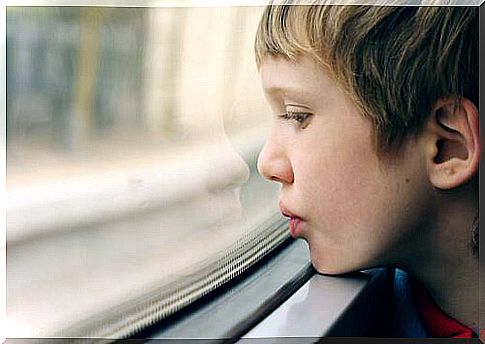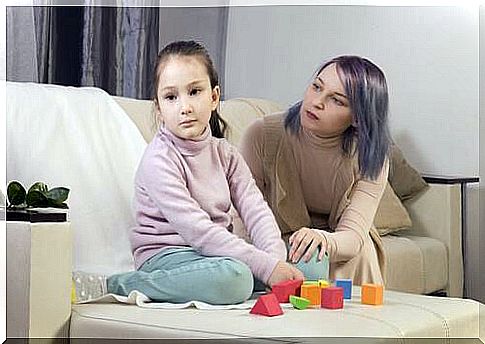Workshop For Parents Of Autistic Children

The results of several studies confirm a greater satisfaction and quality of life for families that improve the understanding of the emotions of all members. For example, workshops for parents of children with autism can be very helpful.
Let’s see what they are and why workshops for parents of children with autism are a useful emotional tool.
It has been over 200 years since the first case of autism was discovered. It was 1770 when Prefect described the case of an eleven-year-old boy suffering from a disorder with prolonged states of confusion and delirium which, at times, were alternated with periods of lethargy and agony. Various theories arose in an attempt to explain this disorder.
Nowadays, several studies have shown that the origin of autism is to be found in the alteration of several genes. But in the past, as mentioned, several theories were developed. One of the most influential is the theory of mind, formulated in 1985 by Simon Baron-Cohen, Alan Leslie and Uta Frith. With their studies around the development of social understanding in children, they presented the hypothesis that autistic people have no theory of mind. That is, they do not have the ability to attribute independent mental states, either to themselves or to others, that explain or understand human behavior.
When a child is diagnosed with autism, the family is forced to go on an unexpected journey. The future suddenly becomes uncertain. Filtering and understanding all related information and options can be destabilizing. You will come across a lot of professionals with different opinions and technical terms that are difficult to understand, as well as a wealth of information and suggestions from third parties. You will have to prepare for emotions such as fear, suffering, denial, guilt, anger and sadness.
“I feel better when I’m not looking at you. Eye contact is annoying. People will never understand the battle I am leading to succeed. ”
-Wendy Lawson-

Parents of children with autism face two new things: having a child and having to deal with a developmental disorder that they probably struggle to understand. These changes are the inevitable cause of a physical and psychological imbalance. Children’s behaviors confuse family members. Do not answer, repetitive play and the refusal of physical contact are just some of the attitudes that most affect the family unit.
It is for these reasons that workshops for parents of children with autism are very useful for understanding the disease and knowing how to manage it, providing the right tools for children’s education.
How to deal with the growth of a child in a world he does not understand
Autism is a syndrome that impairs the quality of life of the sufferer and their family members, making social relationships and learning difficult, and the future uncertain from the point of view of independence, self-management and productive life.
Parents of children with autism are forced to change different aspects of their lives in relation to the great demand for attention that these children require, given their difficulties in terms of personal, family and work development. All of this can put the physical and mental health of the family at risk.
Having to manage a person with many limitations, such as those related to language and social interaction, prevents parents from having the time and money available to meet their needs. The life of the parents of autistic children can only revolve around them, generating a significant decline in the quality of life.

Workshop for parents with autistic children: emotional education
We live in a world where emotions play a key role both on a personal level and in the relationship with the environment. Emotional education is a necessary and very fruitful resource. While every person with autism is unique and different, there are some common traits. Examples include fear of change, lack of language skills, limited interests, stereotypy, distorted sensitivity, and difficulty being empathetic.
It is precisely these common characteristics that are evaluated, taught and addressed in workshops for parents with autistic children. When they get diagnosed, parents can go into shock. The news could upset them enough to send them into confusion, almost paralyze them. Later, they usually enter a state of denial in which they do not want to accept the reality of the facts. They often turn to other doctors, clinging to the most favorable, if wrong, diagnosis.
Then the acceptance process begins, which can lead to depression, moments of distrust and sadness. Only at the end does the moment of realization come, in which all the previous stages are put behind us and we roll up our sleeves to help the child. We go in search of the most personalized and beneficial treatment for the child. The duration of each phase just described can vary greatly from one family to another.
For all these reasons it is considered of great importance to attend a workshop for parents of autistic children. The benefits are not only for the parents, but also for the children. The results of several studies confirm greater satisfaction and a better quality of life in families who wanted to improve their knowledge of this disorder.









